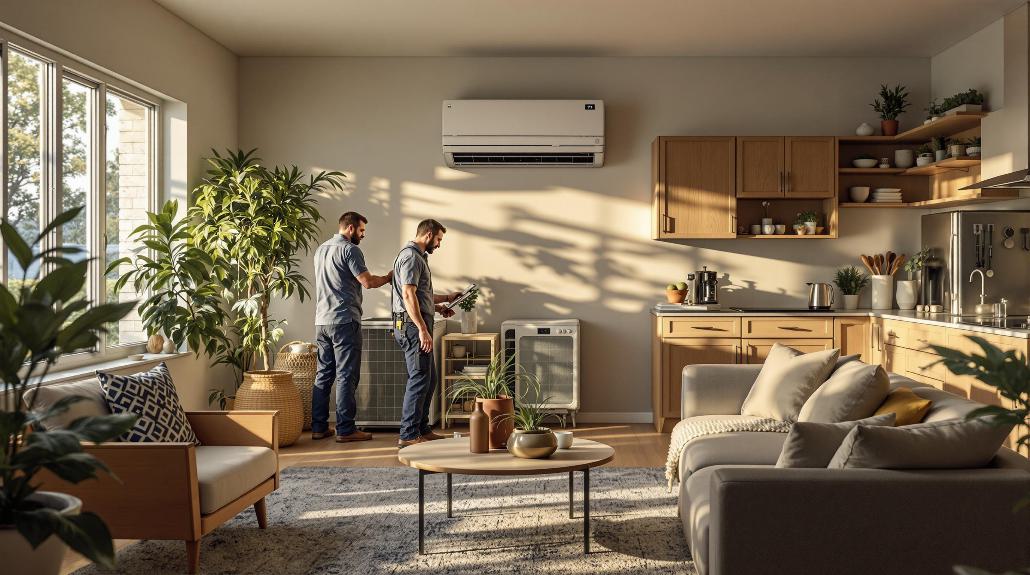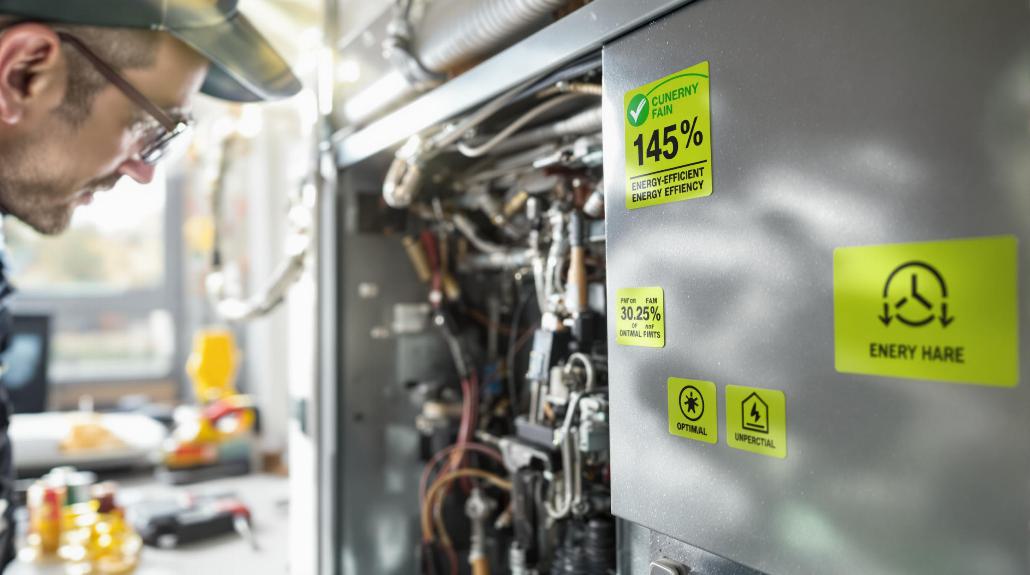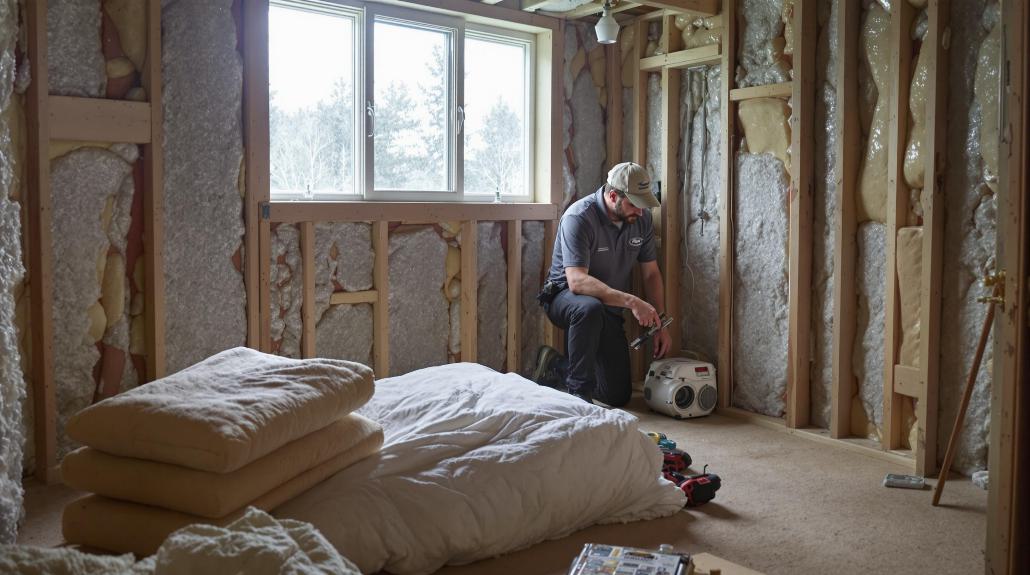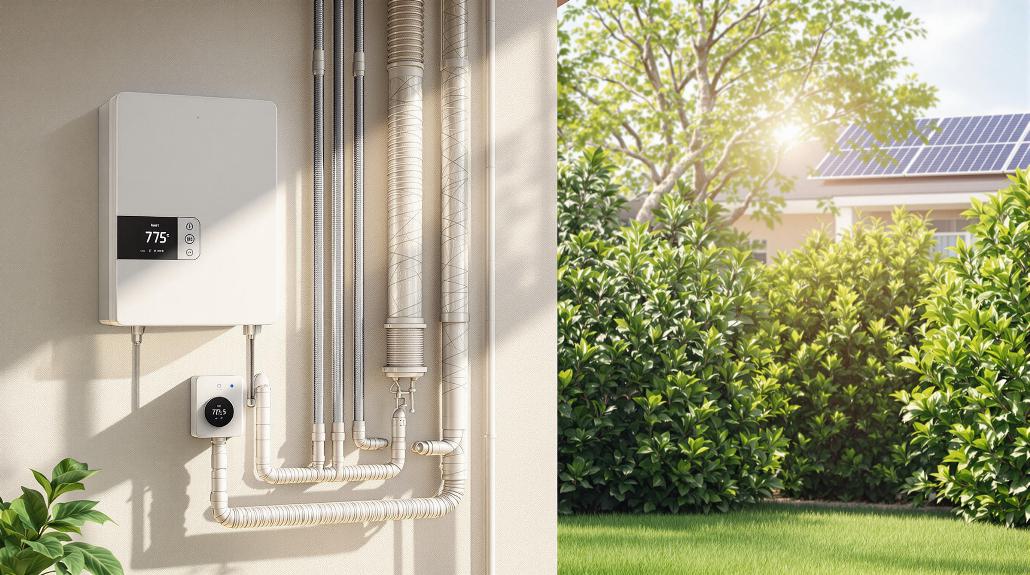How to Reduce Energy Bills With Efficient HVAC Maintenance

If you want to cut down on your energy bills, efficient HVAC maintenance is a crucial step you shouldn’t overlook. By regularly inspecting and maintaining your system, you not only enhance its performance but also save significant costs in the long run. Simple actions, like changing air filters and scheduling annual check-ups, can make a noticeable difference. But there are other strategies and upgrades that can further optimize your energy efficiency. Curious about what they are and how they can impact your home’s comfort and budget?
Key Takeaways
- Change air filters every 1-3 months to improve airflow and reduce energy consumption by up to 15%.
- Schedule annual HVAC maintenance inspections to catch issues early and prevent costly breakdowns.
- Clean coils and fins regularly to enhance system efficiency by up to 30%.
- Conduct home energy audits to identify heat loss areas and save an average of 20% on energy costs.
- Ensure proper refrigerant levels, as low levels can decrease efficiency by 5% for every 10% reduction.
Understanding HVAC Energy Efficiency

Understanding HVAC energy efficiency is essential for homeowners looking to reduce energy bills and lower their carbon footprint. HVAC systems account for about 51% of energy use in typical U.S. homes, so investing in an energy-efficient HVAC system is crucial.
When selecting a new cooling system, aim for models with a high Seasonal Energy Efficiency Ratio (SEER) rating of at least 15. This ensures lower energy consumption without sacrificing comfort.
Additionally, proper insulation and sealing of air gaps in your home can significantly enhance overall HVAC efficiency, minimizing heat loss and contributing to long-term energy savings.
Regular maintenance is another vital aspect; changing air filters every 1-3 months prevents system inefficiencies that can lead to high energy bills.
Consider using a programmable thermostat to allow automatic temperature adjustments based on your schedule. This can reduce energy use during unoccupied times by up to 20%.
Regular Maintenance Practices
Implementing regular HVAC maintenance practices is crucial for ensuring your system operates efficiently and effectively. One of the simplest yet most impactful tasks is changing air filters every 1-3 months. This practice can improve airflow and system efficiency, reducing energy consumption by up to 15%.
Scheduling annual HVAC maintenance inspections allows technicians to identify potential issues before they escalate, preventing costly breakdowns and extending the system’s lifespan.
Additionally, cleaning the coils and fins as needed can enhance system efficiency by up to 30%. This not only lowers energy bills but also improves indoor air quality.
Conducting a home energy audit helps pinpoint areas of heat loss, enabling you to make targeted improvements that could save you an average of 20% on your energy costs.
Lastly, ensuring proper refrigerant levels is essential. A low refrigerant charge can reduce efficiency by 5% for every 10% reduction, leading to increased energy bills.
Insulation and Sealing Techniques

Effective insulation and sealing techniques play a vital role in enhancing your home’s energy efficiency. Proper insulation in attics and around HVAC ducts significantly minimizes heat loss, reducing the workload on your HVAC system and leading to lower energy bills.
To ensure optimal thermal resistance, follow the International Energy Conservation Code (IECC) guidelines for recommended insulation R-values.
Sealing air gaps and cracks around doors and windows is essential. By using weather stripping and caulking, you can prevent conditioned air from escaping, which may save you up to 20% on heating and cooling costs.
Additionally, upgrading to energy-efficient windows drastically reduces air leakage, enhancing overall insulation and contributing to a more comfortable indoor environment.
Insulating ducts located in unconditioned spaces, such as attics or crawl spaces, is crucial for reducing heat transfer and promoting better airflow. This not only enhances HVAC system efficiency but also lowers your energy expenses.
Thermostat Management Strategies
Adjusting your thermostat settings is one of the simplest yet most impactful strategies to reduce energy bills. By setting your thermostat to 78°F during the summer and 72°F in winter, you can optimize energy savings, potentially cutting energy consumption by up to 10% for every degree you adjust.
To enhance this effect, consider utilizing programmable or smart thermostats, which automatically adjust the temperature when your home is unoccupied, leading to savings of around 15% on heating and cooling bills.
Gradually changing your thermostat by just one degree can reduce energy usage by approximately 1%, making small adjustments a practical approach to managing costs. Implementing a consistent temperature schedule using smart thermostats not only improves HVAC systems efficiency but also enhances comfort by providing energy usage reports, which help identify further savings opportunities.
Additionally, monitor outdoor conditions and adjust your thermostat accordingly. For instance, allow cooler morning air to naturally lower indoor temperatures, decreasing reliance on HVAC systems and further reducing energy bills.
Benefits of Energy-Efficient Upgrades

Investing in energy-efficient upgrades for your HVAC system can lead to significant financial savings and enhanced comfort in your home. Upgrading to an Energy Star certified HVAC system can save you up to 20% on heating and cooling costs due to improved energy efficiency compared to older models. Energy-efficient HVAC units typically boast SEER ratings of 15 or higher for cooling and HSPF ratings of 8.5 or higher for heating, significantly reducing energy consumption without sacrificing comfort.
Implementing modern components, such as smart thermostats and high-efficiency air filters, can enhance system performance and lower energy bills by as much as 30%. Regular maintenance ensures optimal performance, contributing to an annual energy savings of up to 20% and prolonging your system’s lifespan.
| Upgrade Type | Benefits | Potential Savings |
|---|---|---|
| Energy Star Certified System | Improved energy efficiency | Up to 20% on costs |
| High-Efficiency Air Filters | Better air quality and efficiency | Lower energy costs |
| Smart Thermostats | Enhanced control and reduced energy consumption | Up to 30% on bills |
| Regular HVAC Maintenance | Prevents breakdowns and ensures optimal performance | Up to 20% annually |
Conclusion
By prioritizing efficient HVAC maintenance, you can significantly reduce your energy bills. Regular inspections, timely air filter changes, and proper refrigerant levels enhance system performance. Don’t overlook the importance of sealing and insulation, as they play a crucial role in energy efficiency. Additionally, utilizing programmable thermostats allows you to optimize your home’s temperature settings. By implementing these strategies, you’ll not only lower costs but also extend the lifespan of your HVAC system, ensuring reliable comfort year-round.